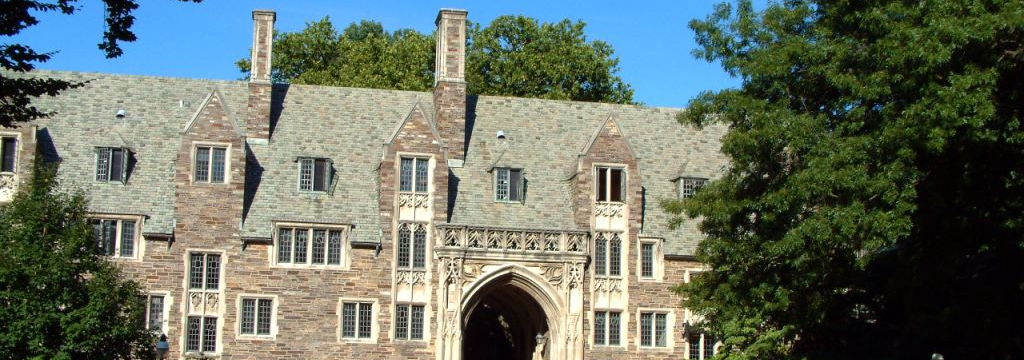As a member of the Ivy League and an institution known for its academic rigor and impressive alumni network, it is easy to understand why Princeton University earns a spot on many students’ best-fit lists. Every year, the school receives tens of thousands of applications from high school seniors and current college students interested in transferring.
While there are many similarities between the first-year application process and the transfer admissions process, there are also several key differentiators that students need to know if they’re interested in switching schools. Keep reading to learn everything you need to know about Princeton transfers.
Princeton Transfer: Basic Requirements
Regardless of when you’re applying, getting into a highly selective university like Princeton is a multi-step process that requires plenty of hard work, research, and self reflection. When it comes to learning more about how to get into Princeton, the first step students need to take is making sure they have all of the materials that will be required during the admissions process.
These materials include a handful of important documents including your high school transcript, essay and personal statement, standardized test scores, and some materials specific to transfer applicants, like your college transcript and a letter of good standing from your prior institution. Don’t wait until the last minute to compile these materials, even if you’re busy with your current coursework. Some application elements, such as the Princeton essays, take time to write, edit, and finalize, so make sure to get started on your application months before the deadline.
In addition to gathering the required materials, transfer students need to make sure they meet the requirements associated with the transfer admissions process. Students who have acquired one or two full years of college credits may apply as transfer candidates for Princeton’s incoming sophomore or junior class; transfers into the senior class are not considered. The eligibility of certain credits to transfer into the Princeton curriculum is determined by the faculty and college deans.
What Is the Princeton Transfer Acceptance Rate?
Much like their first-year admissions rate, gaining a seat at Princeton University as a transfer student is highly competitive. In fact, the actual acceptance rate for transfer applicants is considerably lower than it is for first-year students.
In the 2020-21 admissions cycle, the university admitted only 18 transfer students after receiving 1,349 applications, which lent to an acceptance rate of approximately 1.2%. In contrast, Princeton University’s acceptance rate for first-year applicants in that same year was 4.3%.
In spring 2022, the university announced their intent to increase the number of transfer acceptances to 25 applicants per year with the hope of having 100 transfer students enrolled on campus in a given year. Seeing as they regularly receive hundreds and recently over 1,000 transfer applications, the effect on their overall transfer rate will likely be minimal.
What are Princeton University Transfer Deadlines?
Another difference between Princeton University transfers and first-year admissions is the timeline. While high school students need to submit their applications in the fall or early winter, the process is slightly shifted for transfer students.
The Transfer Application for Princeton becomes available in the fall, and the application, written paper, and Princeton transfer supplement are all due on March 1st, 2023. The financial aid application is due on March 9th, and all ACT and SAT scores must be completed by the end of March if students are taking them – Princeton is remaining test optional through the 2022-23 admissions cycle.
When Are Decision Dates for Princeton University Transfer Applicants?
Since the application deadlines are pushed back for Princeton University transfer students, it’s only logical that the decision dates will also be several months behind the timeline for first-year applicants. Students are notified of their admissions outcomes by mid-May and must reply to this decision by late May to secure a seat in next year’s class.
Are You More Likely to Get Accepted as a Transfer Student?
As the competitive acceptance rates indicate, students who apply to transfer to Princeton are not more likely to get into Princeton than first-year applicants. In fact, the admissions rate for transfer students is significantly more selective than it is for those who are applying straight out of high school. Generally, Princeton University only selects a small handful of transfer applicants for admission into their upcoming class. In the 2020-21 admissions cycle, the university also received a record number of transfer applications. Princeton reported nearly 50% more application submissions than they received during the prior year.
While Princeton University transfers might be relatively rare on a year-to-year basis, that doesn’t mean that you should give up hope of gaining a seat in the upcoming class. Instead, think of these numbers as statistics that can help keep your expectations in check and encourage you to give your application your absolute all. It’s crucial to keep track of all the dates and deadlines associated with the transfer admissions process and make sure that you include every application component they request.
Final Verdict: How to Transfer Into Princeton University
In addition to dotting the i’s and crossing the t’s of your application process, the Transfer Supplement requires considerate thought, research, and preparation. The university asks students to write about their academic interests, extracurricular activities, and work experience. Applicants are also asked to either share a story of a time they participated in a difficult conversation or to explain how their personal stories intersect with the idea of civic engagement.
Several supplemental questions ask prospective Princeton University transfers about their academic experience, including any potential gaps in their learning and post-higher education plans. These questions need to be answered thoughtfully and make a compelling case for why a student will benefit from a Princeton education and the impact they will make on campus.
Before completing these supplemental questions, students should take some time to reflect on the reasons to transfer colleges that motivated their application to begin with. Come back to your why and think about what Princeton can offer you that other colleges might not be able to and how these experiences will play into your long-term ambitions and career goals.
It’s not enough to transfer simply because you’re looking for a change of scenery or hoping to have a prestigious name on your resume; to boost your admissions odds, you must be able to clearly articulate why you deserve a spot in the upcoming class and how you will utilize your Princeton education in the future. This is where ample research, self-reflection, and careful editing will come into play.
Of course, in addition to thoughtful supplement responses and essays, you’ll need to make sure your grades measure up to Princeton’s high standards. Princeton students are generally at the top of their class, so you should strive to maintain as close to a 4.0 GPA as possible and challenge yourself with advanced-level coursework. If you’re submitting SAT or ACT scores, keep in mind, the middle 50% SAT scores are a 740-800 (Math) and a 720-780 (Reading and Writing). The middle 50% ACT score is 33-35. These are the kinds of numbers that applicants will need to aim for if they’re hoping to be competitive during Princeton’s notoriously selective transfer admissions process.
Get Started on Your Princeton Transfer Application
Don’t let the competitive admissions and low acceptance rate discourage you from applying as a Princeton University transfer. Instead, commit yourself to showcasing everything you have to offer and compiling an application that genuinely makes you proud.
If you’re just beginning to explore the idea of switching schools and looking for more guidance, our team of expert college counselors can guide you through every step of transfer admissions and help you make the most of your academic journey.




